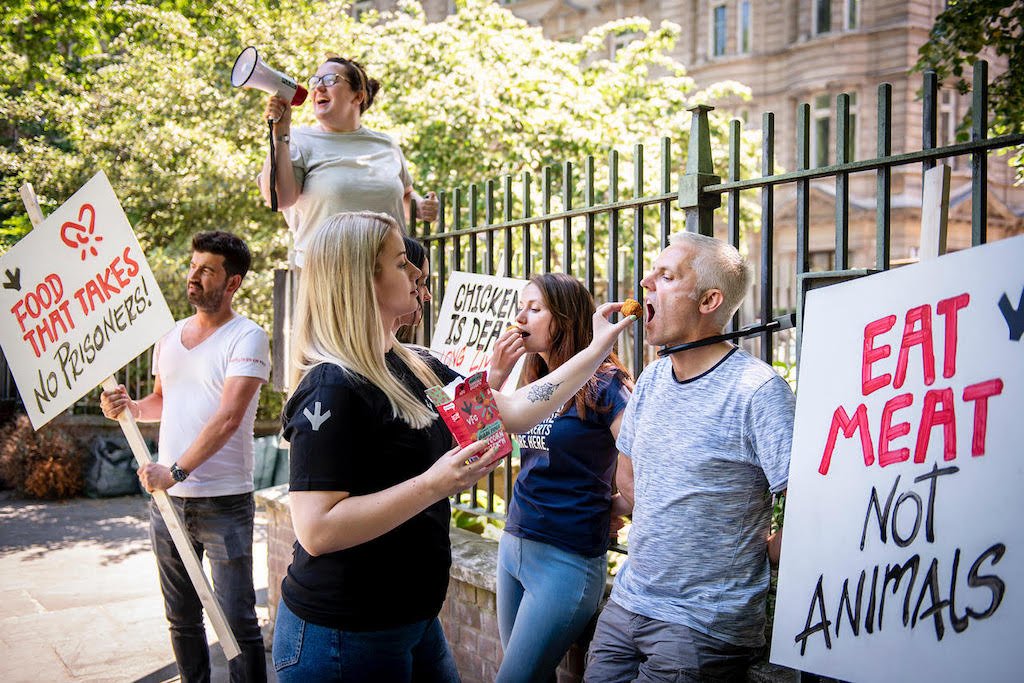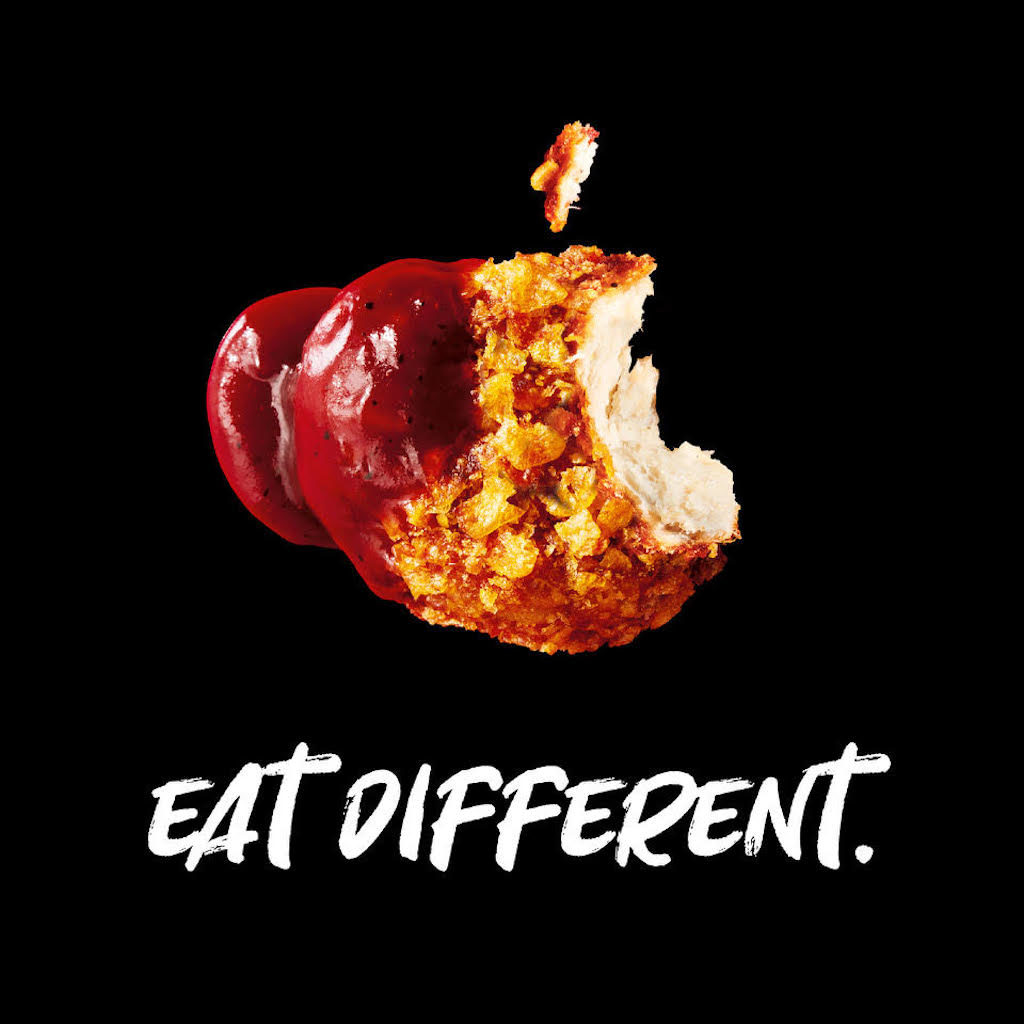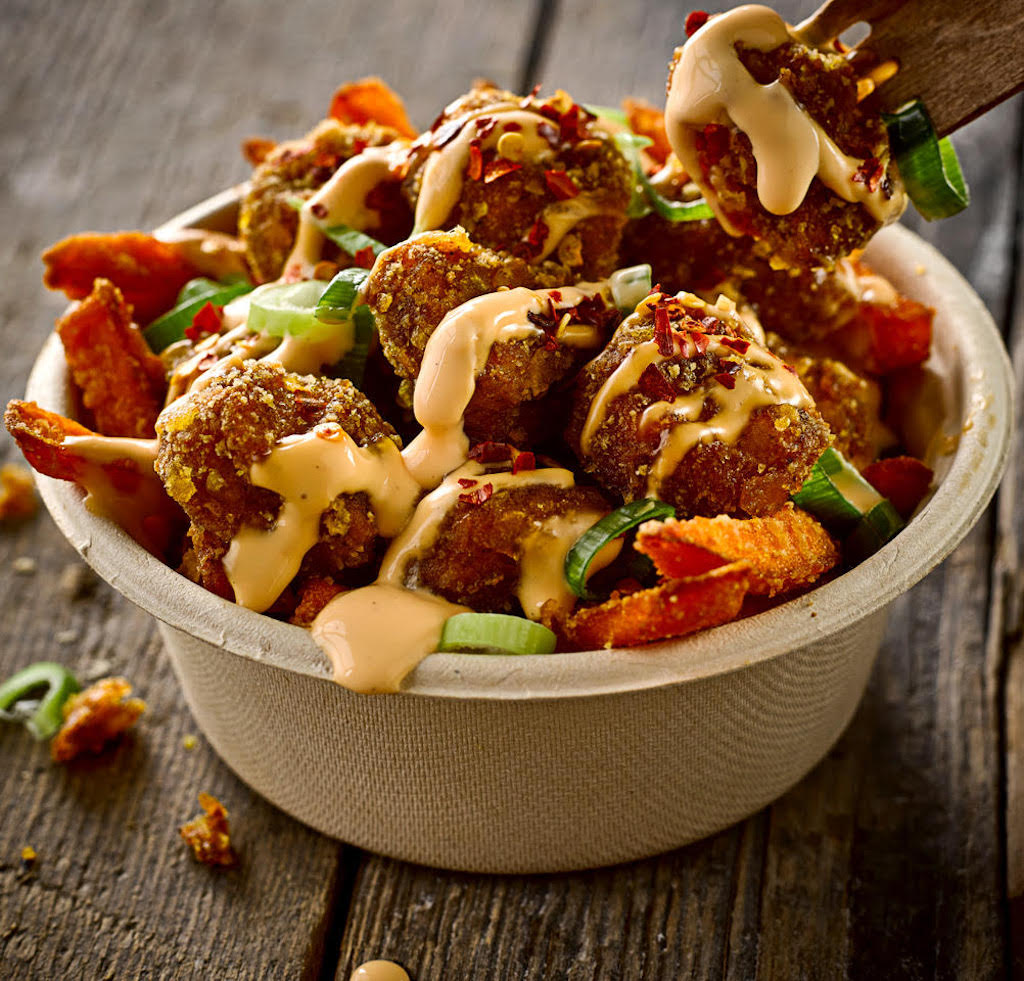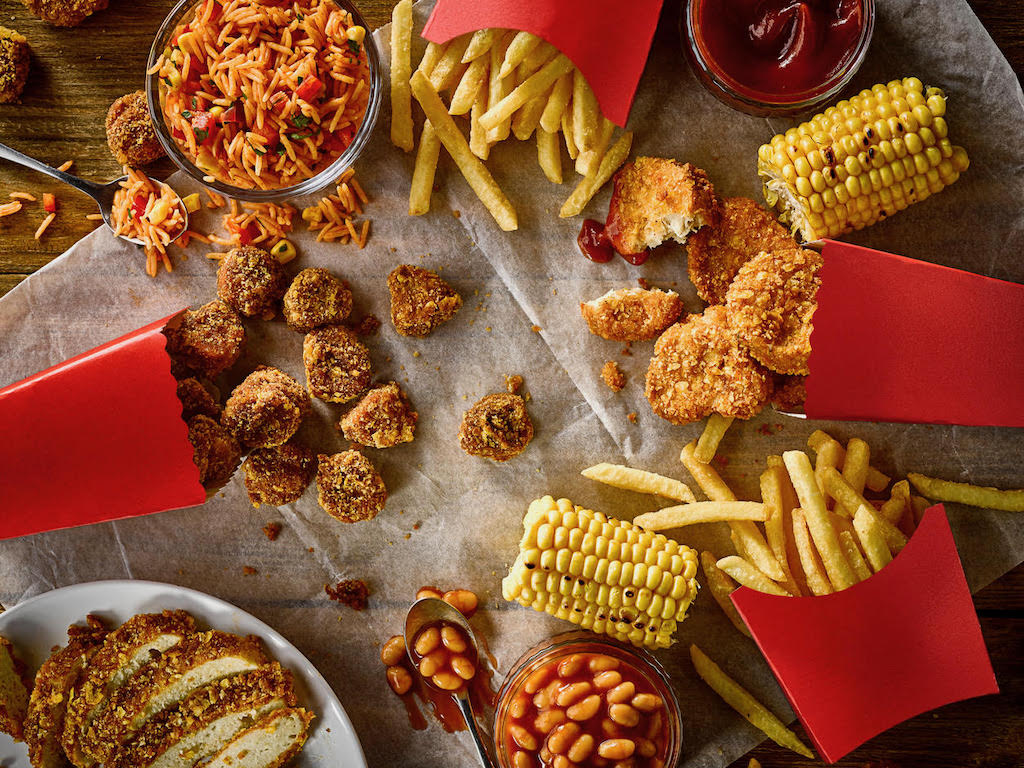5 Mins Read
VFC, the vegan chick*n company that twists the name of the fast-food giant KFC, has positioned itself as a brand fighting the animal and environmental injustices of the current food system. But while it works directly against the system, it’s not opposed to working with the big firms that do sell harmful meat products. For VFC, it’s all about impact.
Some activists in the vegan movement believe that working with mass food retailers that do sell meat products from factory farms is a bit of a contradiction. And it seems particularly paradoxical for VFC, the British startup that has made a name for itself as an animals-first vegan food tech with ethical branding, to now be launching at the UK’s largest supermarket chain Tesco.
But the company believes that working with big retailers like Tesco is part of its mission to disrupt the food system. Yes, the company is working against big meat and dairy, but at the core of its mission is saving the lives of animals and the planet—and to do that simply requires working with large chains. In short, it’s about impact.

Effective activism means working with big retailers
“The quickest way to end factory farming is to work within the current system,” Matthew Glover, co-founder of VFC, tells Green Queen Media. “If we have to bring down capitalism before we bring down factory farming, it’s going to take a whole lot longer.”
“VFC is against the system, but at the same time, we are keen to work with the retailers who currently sell meat. It’s the only way we’re going to shift society,” he adds.
The brand just announced that it will be hitting hundreds of Tesco stores nationwide in the UK from November onwards, just months after it first launched via its direct-to-consumer website. VFC’s team says they have “always had their eye” on the largest retail outlets because that’s what will make their activism most effective.
Glover, who co-founded the charity Veganuary, which has since become a global movement encouraging more than 1 million people to go vegan, explains that partnerships with huge retailers are necessary because it gives VFC the reach required for its ultimate goal of ending factory farms. Launching in places like Tesco allows the brand to broaden its consumer base to mainstream shoppers, who otherwise may have never heard of vegan chicken alternatives before.
“Given we don’t have affordable, organic, vegan stores within walking distance of every home, we need to put our food and our message where people will see it, and that means being in supermarkets,” Glover tells us. “To put that in perspective, in terms of consumer reach, just ten companies control more than 96% of the grocery market in the UK while fully vegan shops represent a tiny fraction.”

VFC is not ruling out fast food
That’s also the reason why VFC won’t rule out working with fast food giants, whose menus are filled with meat and therefore become one of the primary targets of boycotts in environmental campaigns and some portions of the plant-based movement.
Glover says that drawing the line with QSR chains would translate to an enormous lost opportunity to convince mainstream shoppers to choose the cruelty-free and sustainable option. “I’d feel a hypocrite if I said I wanted to end factory farming but then failed to take every opportunity to do so,” he explains.
“We never miss an opportunity to talk about chickens and the appalling consequences of animal agriculture for them and for the planet. We love that vegans love VFC but it’s more important for animals that omnivores do.”
“If consumers can only choose between meat products, how are we ever going to showcase vegan food to omnivores? According to HappyCow, there are 8,100 vegan restaurants in the world out of 15,000,000 in total,” Glover continues. “If we limit ourselves to only supplying the 0.05%, we’re not going to have a significant impact for animals. We want VFC in those fast-food outlets. That’s what we are shooting for.”

‘We’re better off influencing from the inside’
The co-founder went on to explain that from his experience at Veganuary, he’s learned that encouraging dietary change isn’t always straightforward. So working with large players in the system actually enables VFC to achieve its impact mission of getting all people, not just dedicated vegans, to choose the plant-based option whenever and wherever possible.
“We’d love it if you could just explain to people that animals suffer and don’t want to die, and then they’d become vegan, but people are more complex than that. All the research shows we need to meet them where they are,” he shares.
Rolling out at major supermarkets also gives VFC the chance to educate mainstream shoppers. “If consumers pick up a product they like the look of, try it and love it, they’ll buy it again, but they may also continue to buy other animal products. It’s crucial that the message follows the food. We need to give people solid reasons to seek out vegan products, and to choose them over animal products at every opportunity.”
And at the end of the day, Glover thinks that conventional retail and food producers aren’t actively trying to destroy the planet. In fact, many of them share similar values that vegans uphold. “They want a fairer, kinder, more sustainable world as well,” he tells us.
“We don’t necessarily all share the same views as to how we achieve this, but I feel we’re better off influencing from the inside, rather than operating in a bubble.”
This article is part of special insight series in collaboration with vegan chick*n brand VFC in which we explore their unique and inspiring approach to building a cruelty-free food brand from scratch. Read the other articles in the series here.
All images courtesy of VFC.




